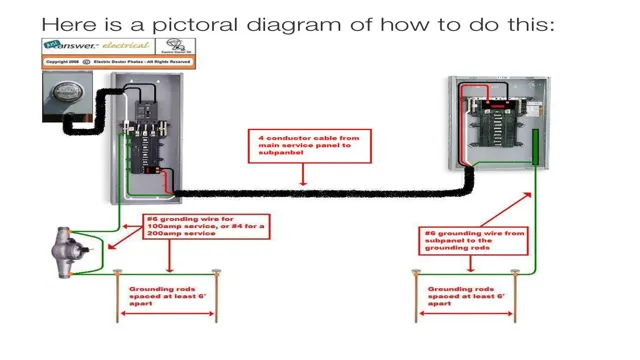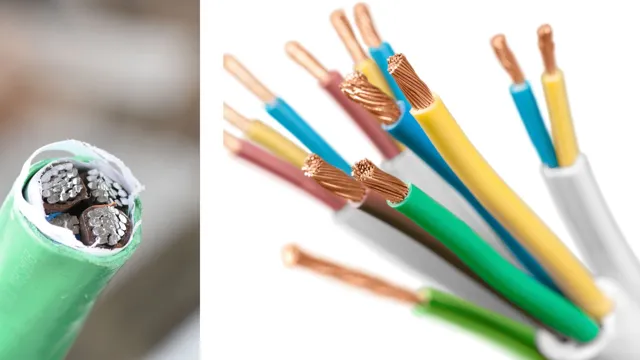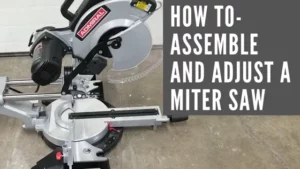Have you ever thought about choosing the right ground wire for your 100 amp service? Many homeowners overlook this crucial aspect of their electrical system, but the truth is, it can have a significant impact on safety and performance. Your ground wire serves as a vital protection measure, directing excess electricity away from sensitive devices and keeping you and your family safe from electrical shock. In this blog post, we’ll explore the importance of selecting the right ground wire for your 100 amp service and provide tips to ensure you make the best choice.
Think of it like choosing the right foundation for your home; without a solid grounding system, your electrical system won’t function properly, and your safety could be at risk. So, let’s dive in and discover everything you need to know to choose the perfect ground wire for your 100 amp service!
Understanding Grounding and Bonding
When it comes to a 100 amp service, you’ll need to determine the appropriate size for your ground wire. Generally, experts recommend using a #8 AWG copper wire or a #6 AWG aluminum wire for grounding and bonding in a 100 amp service. However, the actual size may vary depending on your local building codes, the type of wiring you’re using, and other factors.
It’s important to consult with a licensed electrician to make sure you’re using the correct size wire and that your grounding and bonding is up to code. Remember, proper grounding and bonding is essential to ensuring the safety and security of your electrical system. So, don’t take any chances.
Talk to an expert and make sure your system is properly grounded and bonded for the best results.
What is Grounding?
Grounding and bonding are two important concepts that are crucial in electrical systems. Grounding refers to the practice of connecting electrical devices and equipment to the ground, which provides a safe path for electrical current in case of any faults or surge. When the electrical current is grounded, it flows through the ground wire instead of the user’s body, preventing any potential electrocutions.
Bonding, on the other hand, refers to the connection between electrical devices and equipment, ensuring that they are maintained at the same potential. This helps prevent any potential electrical sparks from being produced, reducing the risk of fires. Understanding grounding and bonding is crucial in maintaining a safe and sustainable electrical system, and it is important to consult with professionals to ensure that all electrical devices and equipment are correctly grounded and bonded for optimal safety.

What is Bonding?
Bonding is an important concept in electrical systems that is often confused with grounding. While grounding is about creating a path for electrical energy to flow to earth, bonding is about creating a low-impedance connection between two or more conductive surfaces in order to prevent electrical arcing and ensure safe operation. This is particularly important in situations where there is a risk of static electricity buildup or lightning strikes.
Bonding can be achieved through various methods, including the use of conductive materials such as copper or aluminum wires, bolts, clamps, or bonding straps. Ensuring proper bonding is essential for the safety and reliability of electrical systems, as well as for compliance with electrical codes and regulations.
Determining the Ground Wire Size
When it comes to determining the size of the ground wire for a 100 amp service, there are a few factors that need to be considered. One of the most important is the size of the service entrance cable. The National Electrical Code (NEC) requires that the ground wire be at least as large as the largest ungrounded (hot) conductor.
So, for a 100 amp service, if the service entrance cable is made up of 4 AWG copper conductors, the ground wire must also be 4 AWG. It’s important to note that the ground wire is there to provide a safe path for electrical currents to follow in the event of a fault or short circuit. By ensuring that the ground wire is appropriately sized, you can help prevent electrical hazards and keep your home safe.
Calculating Minimum Ground Wire Size
When it comes to electrical systems, it is important to calculate the minimum ground wire size in order to ensure safety and compliance. Determining this size requires taking into account factors such as the maximum fault current and the length of the wire, as well as the type of conductor material being used. It is also important to consider the temperature rating of the wire, as exceeding this rating can result in overheating and potential fires.
By taking the time to properly calculate the minimum ground wire size, you can ensure that your electrical system is safe and functioning properly. Remember, it’s always better to err on the side of caution when it comes to electrical systems!
Factors to Consider When Choosing Ground Wire Size
When it comes to determining the ground wire size, there are several factors to consider to ensure proper electrical safety and functionality of the system. One key factor to consider is the amperage capacity of the circuit. A ground wire that is too small for the amperage of the circuit can cause overheating and potentially start a fire.
It’s also important to consider the length of the ground wire, as a longer wire will have increased resistance and require a larger size to compensate. Another important factor is the material of the wire, as different materials have varying conductivity and resistance properties. It’s recommended to consult with a qualified electrician or refer to the National Electrical Code to determine the appropriate ground wire size for your specific application.
By taking these factors into consideration, you can ensure the safety and reliability of your electrical system.
Chart for Ground Wire Sizes Based on Service Amperage
Ground wire sizes for service amperage are crucial factors in ensuring the safety of electrical systems. The size of the ground wire is vital for systems, as it provides a low resistance path that safely diverts excess electrical current away from the equipment or appliance. When determining the size of the ground wire needed, electricians must consider the amperage of the service.
A chart for ground wire sizes based on service amperage is essential for electricians to have. Such a chart will help them determine the required size of the ground wire, considering the electric load, the electrical code, and the distance from the source of the electrical voltage. It is important to choose the correct ground wire size to avoid overheating and electrical fires.
As an electrician, always ensure that you refer to a reliable chart when determining the size of the ground wire needed, and you will always provide safe electrical installations.
Installation Process
When it comes to installing a 100 amp service, it’s essential to make sure all the necessary components are in place. One important aspect of the installation process is determining the size of the ground wire needed. The National Electrical Code requires a #8 copper wire for a 100 amp service.
However, some local codes may require a larger size ground wire, so it’s important to check with your local authorities before proceeding. A properly sized ground wire is crucial for maintaining a safe and reliable electrical system, as it helps to protect against electrical shocks and fires. So, make sure to take the time to properly size and install your ground wire during the 100 amp service installation process.
Materials Needed
When it comes to installing any kind of fixture, having the necessary materials is crucial for a smooth and successful outcome. The same goes for the installation process for home appliances such as a washing machine. Some of the basic materials needed for this installation include hoses, clamps, a vent for your dryer, and of course, the washing machine itself.
You should also have a few handy tools such as wrenches, pliers, and screws, to tighten and secure the various parts that will be involved in the process. It may also be important to have some sealant or adhesive handy in case any leaks or loose connections occur. Having all of the necessary materials on hand before beginning the installation can ensure that the process goes as smoothly as possible and ultimately leads to a successful and fully-functional washing machine.
Installation Steps
If you’re wondering how to install a new program on your computer, don’t worry, it’s easier than you think! Most software comes with an installation file that you simply need to double-click. This will launch the installation wizard and guide you through the process with easy-to-follow steps. Some programs may require you to enter a serial number or agree to licensing terms before you can proceed.
Once you’ve completed all the necessary prompts, the program will install and appear in your list of applications. Just click on its icon to launch it! If you ever want to uninstall the program, simply go to your Control Panel and select “Add or Remove Programs.” Now you know the basics of the installation process!
Conclusion
In conclusion, when it comes to the question of what size ground wire to use for a 100 amp service, the answer is simple: big enough to handle the job. But don’t let the simplicity of this answer fool you, choosing the correct wire size is important for ensuring the safety and efficiency of your electrical system. So, don’t get short-circuited by choosing an undersized wire, and always consult with a licensed electrician to make sure your electrical needs are properly grounded.
Remember, there’s no such thing as being too grounded in life, or in electricity.”
FAQs
What is the purpose of a ground wire in a 100 amp service?
The ground wire in a 100 amp service is designed to provide a safe path for electrical current to flow in the event of a fault or short circuit.
How do I determine the proper size of ground wire for a 100 amp service?
The size of the ground wire for a 100 amp service depends on the type of wiring used and the distance between the electrical service panel and the grounding electrode. It is best to consult a licensed electrician to determine the appropriate size.
What is the difference between a ground wire and a neutral wire?
A ground wire is designed to provide a safe path for electrical current in the event of a fault, while a neutral wire is designed to carry the return current from electrical devices.
Is it possible to use a larger ground wire than required for a 100 amp service?
While it is always important to follow local building codes and regulations, using a larger ground wire than required for a 100 amp service can provide additional protection in the event of a fault or short circuit.
Can a homeowner install a ground wire for a 100 amp service themselves?
It is always recommended that a licensed electrician install and inspect a ground wire for a 100 amp service, as improper installation can lead to serious electrical hazards.
What are some common materials used for grounding in a 100 amp service?
Common grounding materials for a 100 amp service include copper wire, galvanized steel, and copper-clad steel.
How often should a ground wire for a 100 amp service be inspected and maintained?
It is recommended that a ground wire for a 100 amp service be inspected and maintained at least once every five years by a licensed electrician to ensure it is functioning properly and to identify any potential hazards.






